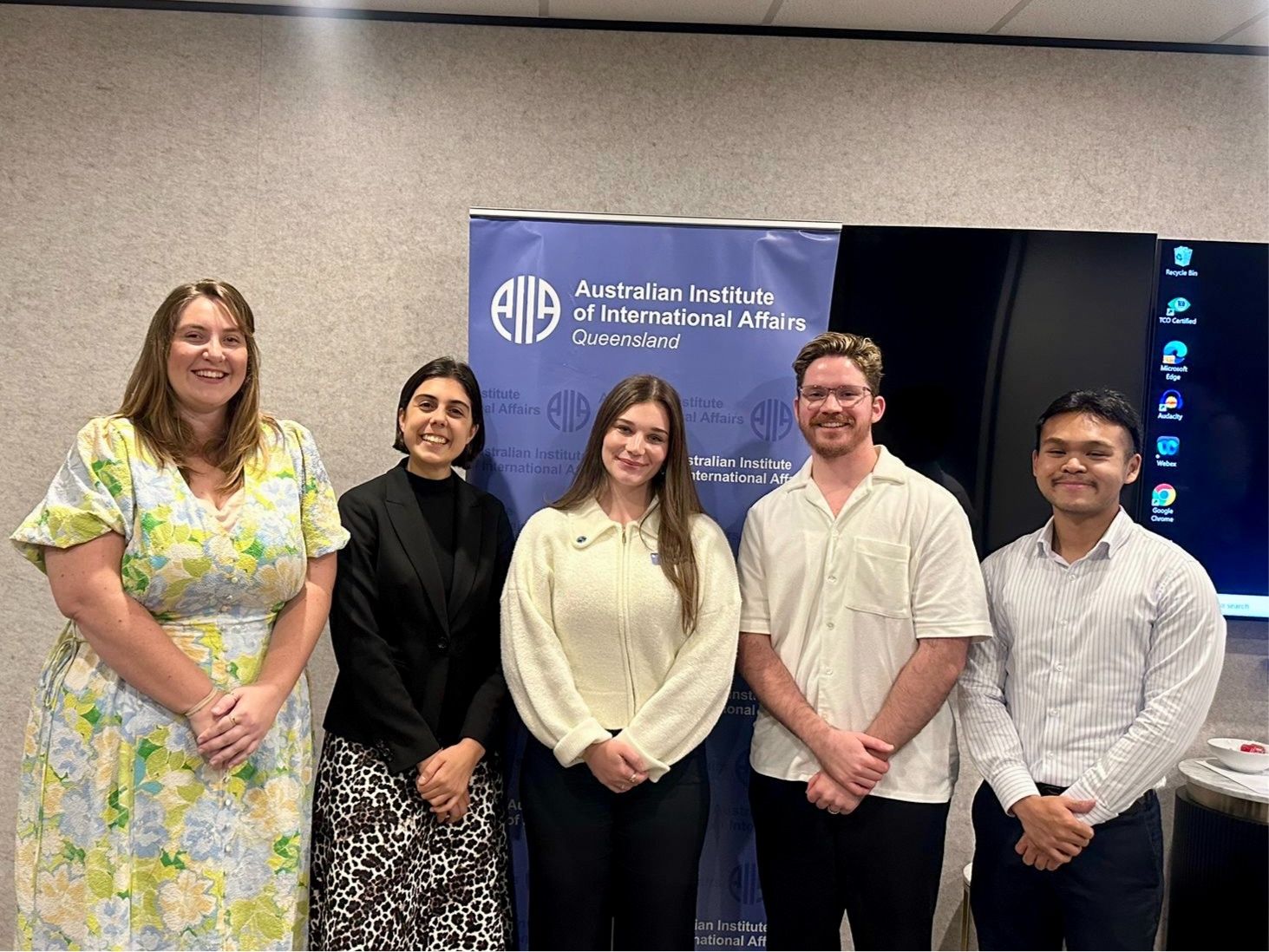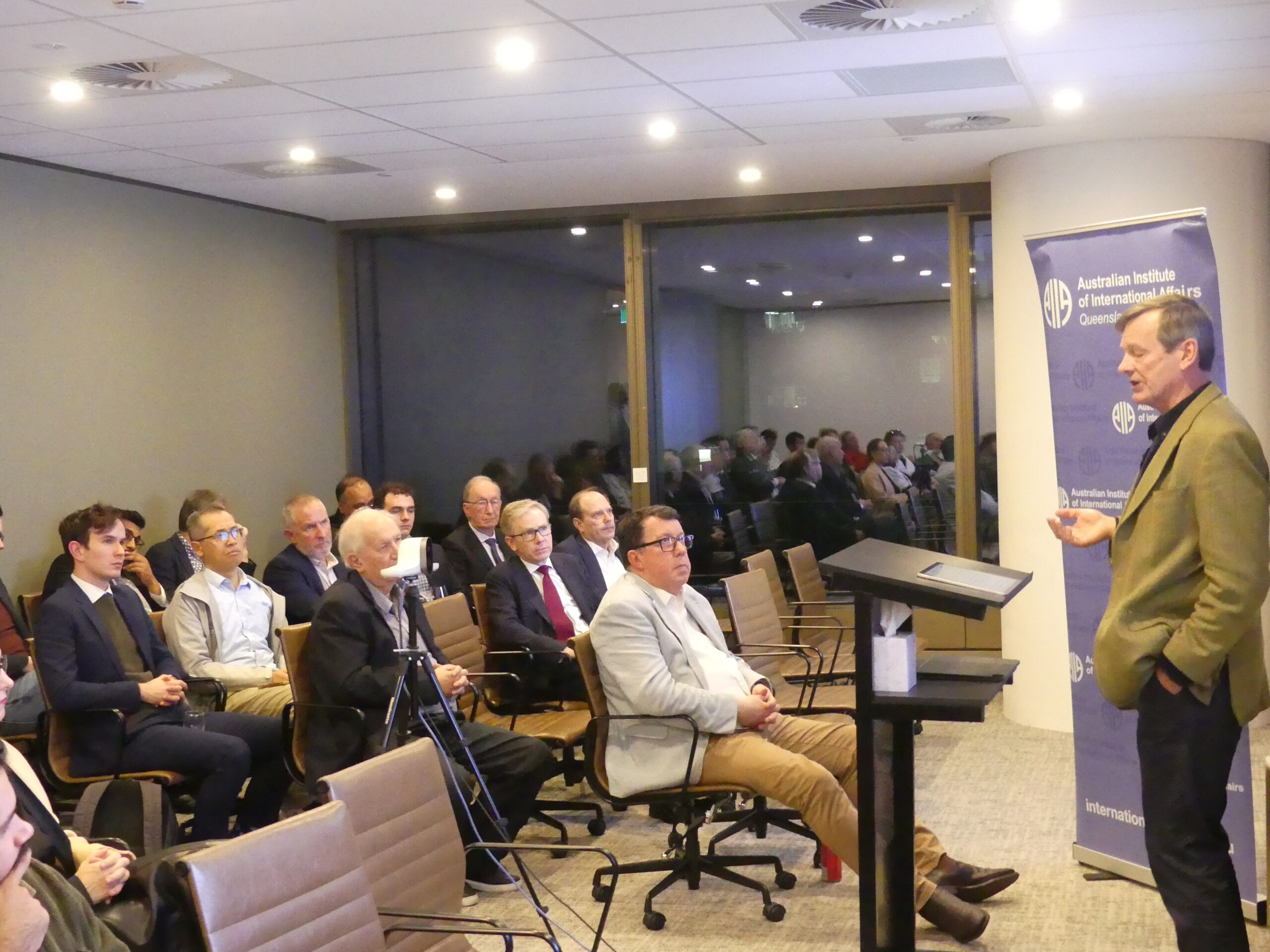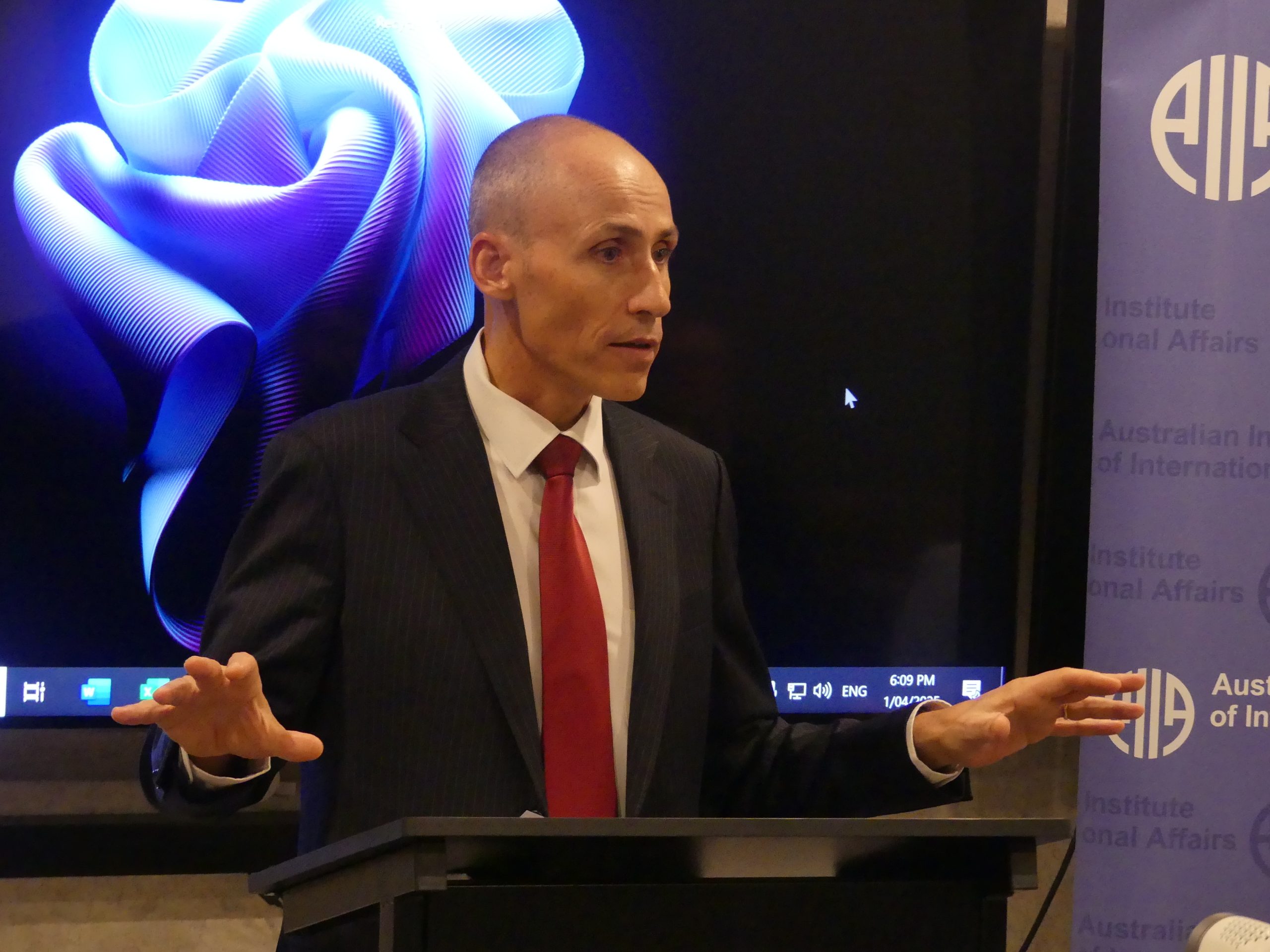Written by Isabella Hollewand
The Solomon Islands security pact with China is an opportunity for Australia to critically reflect on its foreign policy, an AIIA Queensland event has been told.
Edward Acton Cavanough made this case while being interviewed about his new book Divided Isles: Solomon Islands and the China Split, before members and guests on November 14. Mr Cavanough is a freelance journalist and CEO of The McKell Institute, a progressive policy think tank. The interview was conducted by Associate Professor Tess Newton Cain, project leader of the Griffith University Pacific Hub.
Mr Cavanough opened the evening with a background to his book. It recounts the Solomon Islands’ shift of allegiance from Taiwan to China in September 2019 from firsthand observations he made while reporting for The Guardian. As he studied the local reaction while travelling across the islands of Guadalcanal and Malaita, Mr Cavanough came to the belief that Australian commentators had largely misread the situation on the ground. The common narrative of “China meddling” lacked an appreciation for the context and consequences of the policy shift at a local level. The book seeks to fill in these details and provide an opportunity for readers to critically reflect on how Australia perceives and conducts its relations with the Solomon Islands.
The immediate impacts of the switch were complex, and reflective of deep internal divisions within the country. For regions such as Malaita, that have historically felt marginalised from the political centre of Honiara, the switch gave rise to strong anti-China sentiment. This gave traction to opportunists such as leaders of the Malaita for Democracy movement whose agitating culminated in the 2021 Honiara riots, and political actors such as Premier Daniel Suidani who continued to conduct clandestine relations with Taiwan after the switch.
Behind this unrest, however, were real consequences for local people, particularly in under-invested rural regions of the country. Mr Cavanough recalled meeting Misak for example, the manager of Adaliua farm whose Taiwan-funded operation was ceased overnight by the policy shift.
The impact of the switch on marginalised regions is important to consider when assessing the nature of the China alliance. When interviewing Mr Cavanough in the second half of the evening, Associate Professor Newton Cain chose to focus on the “architect” of the deal, Prime Minister Manasseh Sogavare, and his personal project The Pacific Games – funds for which were a key outcome of the new relationship. For Sogavare funding for The Pacific Games represented the chance to build an enduring political legacy. The economic prosperity of China, and its willingness to invest in other actor’s pet projects is, therefore, key to its appeal as an ally.
However, when asked about the feelings of the public toward The Games, Mr Cavanough revealed his sense of the deficiencies of the China approach to diplomacy. While the infrastructure China has invested for The Games is impressive, there remain questions as to its utility once The Games are over. Moreover, the exclusively high price of tickets has been a source of resentment – highlighting existing social inequalities.
There exists an opportunity for other actors, such as Australia, to consider ways in which they can more sustainably invest in the country as a whole through engaging regional areas. While Mr Cavanough was eager to stress that the book is not a “policy manifesto” he was clear that he intended it to invite reflection on how Australia invests in the Solomon Islands. In his view, the investment curried by the Solomons political elite has been largely concentrated in the capital of the country, stoking the divisions driven by economic inequality. “The China challenge” can therefore, be thought of as an opportunity for Australia to differentiate itself from other international actors in the Solomon Islands over the long-term.




